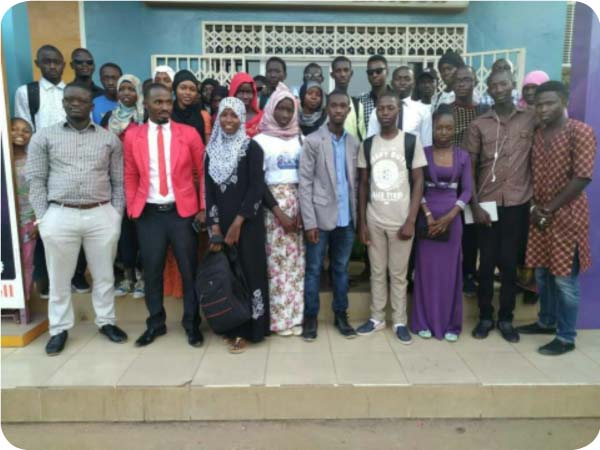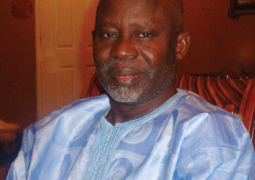
The
Legacy, a youth-led non-governmental organisation, staged a seminar on Policy
Advocacy and African Unity at the American Corner in Bundung on Saturday.
The
event, which was part of the organisation’s commemoration of African Liberation
Day, was attended by a cross-section of youth leaders and students from senior
schools and tertiary institutions.
In
his opening remarks, the Executive Director of The Legacy, Saikou Suwareh
Jabai, said the event was part of the organization’s programmes meant to
enhance the advocacy skills of young people and give them a better
understanding of the concept and significance of policies in their respective
efforts to contribute to national development.
He said with the new political dispensation,
young people have even more of a role to play as pressure groups and watchdogs
in ensuring that government implement the right policies effectively to serve
their intended purpose.
Jabai
said The Legacy would continue to develop the capacity of young people and
engage the central government to provide the much needed environment for youths
to be productive thus curbing migration and unemployment.
Speaking
on the topic ‘Policy, Advocacy and Development’, Mr. Abdoulie Kurang,
Development Studies Lecturer at the University of The Gambia, said public policies
are relatively stable, purpose courses of actions or in actions followed by
government in dealing with a matter of concern.
He said advocacy encompasses a wide range of
activities that influence decision makes.
This, he went on, includes litigation,
lobbying, public education, capacity building, relationship building, forming
networks, and leadership development.
Mr
Kurang noted that nonprofit organizations like The Legacy play a vital role in
this aspect to promote an informed, healthy and strong democratic society.
He
said while many factors influence the development of countries, it is certainly
the case that good policy choices and their effective implementation are major
explanatory variables.
Mr
Kurang concluded that the development record of a particular country is
strongly influenced by their policy choices and governance.
Speaking
on the theme ‘The Need for African Unity- Youth Perspectives’, Liberian
International Motivational Speaker, Mr. Thony Mikel Howard, said African
leaders sat in Adis Ababa in 1963 and spoke about the need for African unity.
Regrettably,
he added, 54 years on the continent is yet to unite.
This,
he said, is mainly due to religious discrimination, ethnic conflicts,
corruption and sectarianism.
“These
are some of the root causes of the division of African. One can only give what
he has, meaning if we are not united in our respective nations, how can we
possibly extend love outside the shores of the states?” he noted.
Mikel
Howard, also a lecturer, said due to the recent political engagements in The
Gambia, the country’s peace is being threatened by the existence of tribalism
and some people’s inability to distinguish between politics and national
development.
The
motivational speaker called on African leaders to encourage term limits while
urging the young people of the continent to be steadfast and take up challenges
as leaders.
Presentations
of guest speakers were greeted by questions and contributions from the
participants.



